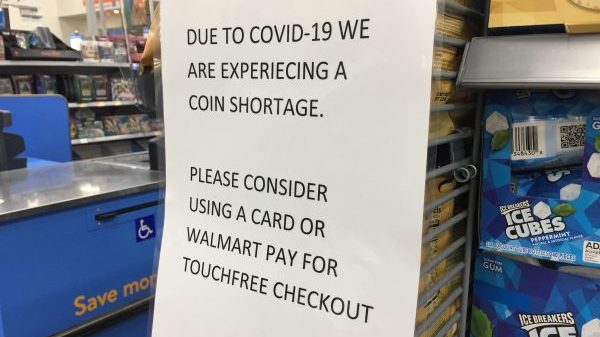This is more of a thought piece than anything else, though I’m sure it will rile up a lot of Bitcoin HODLs and “technical analysts.” Much as I own (not enough) of the shiny algorithm coin, the entire way we go about perceiving future currency seems rather warped. It’s a question requiring a bit beyond the typical wide-eyed enthusiasm of liberty advocates and the general freedom rabble.
For a long time, the theory of Bitcoin promoters has been that its limited cap of 21 million units serves as a safe store of value versus the highly-inflated dollar, which shows no signs of stopping its brrr-a-thon. Coin baggers predict that their currency will continue to rise as governments spend and borrow, perhaps at some point replacing the classical concept of “fiat” or paper money. Folks who have bought or continue to purchase before Bitcoin’s rise to a dominant financial position will be rich, while others are left with largely worthless investments.
But there’s one problem of sorts. These Bitcoin pumpers are basing their wealth and success on its exchange rate with the U.S. Dollar. In other words, to be a Bitcoin “millionaire,” you must assess its value in accordance with the same fiat currency that is supposedly unstable. Selling out of Bitcoin to realize some of this wealth means holding large amounts of an inflationary currency which continues to rise along with the president’s signature on spending bills.
Now, a skeptic could argue he will buy gold with his Bitcoin, but this is highly inconvenient for global transfer and transactions where the price point is less than a full ounce of yellow metal. Furthermore, gold itself is giddily valued in line with the dollar, despite the fact that its supporters believe fiat to be unstable and inflationary. A goldbug I knew even tried to diminish the validity of S&P 500 returns by claiming they were based in dollars instead of gold, despite arguing for gold on the basis of dollars.
This brings us to an important query: what happens if the dollar actually collapses, or ceases to exist? Does gold continue to “store” value? Is Bitcoin still worth a lot of money relatively, or does it adopt a dominant position attune to the dollar, albeit with less inflationary tendencies? And what happens to the people who failed to purchase crypto when it was cheaper in dollar terms? Are they doomed to scraping out an existence with whichever fiat currencies remain, or trying to collect a monthly check of 0.00000000001 BTC to afford the good consumerist lifestyle?
No one can really know. The future might be crypto, but that scenario could end up being unpleasant, depending on who possesses a bigger account.



You must be logged in to post a comment.